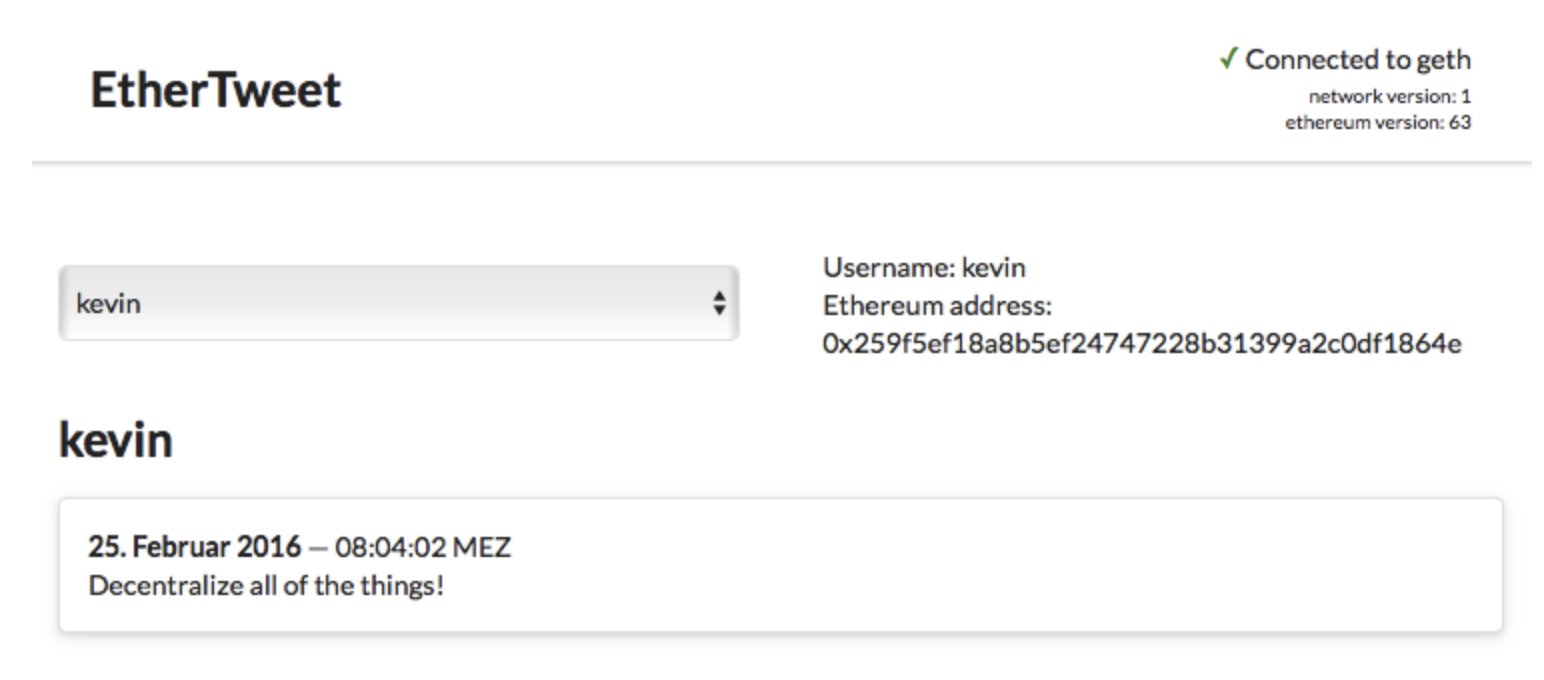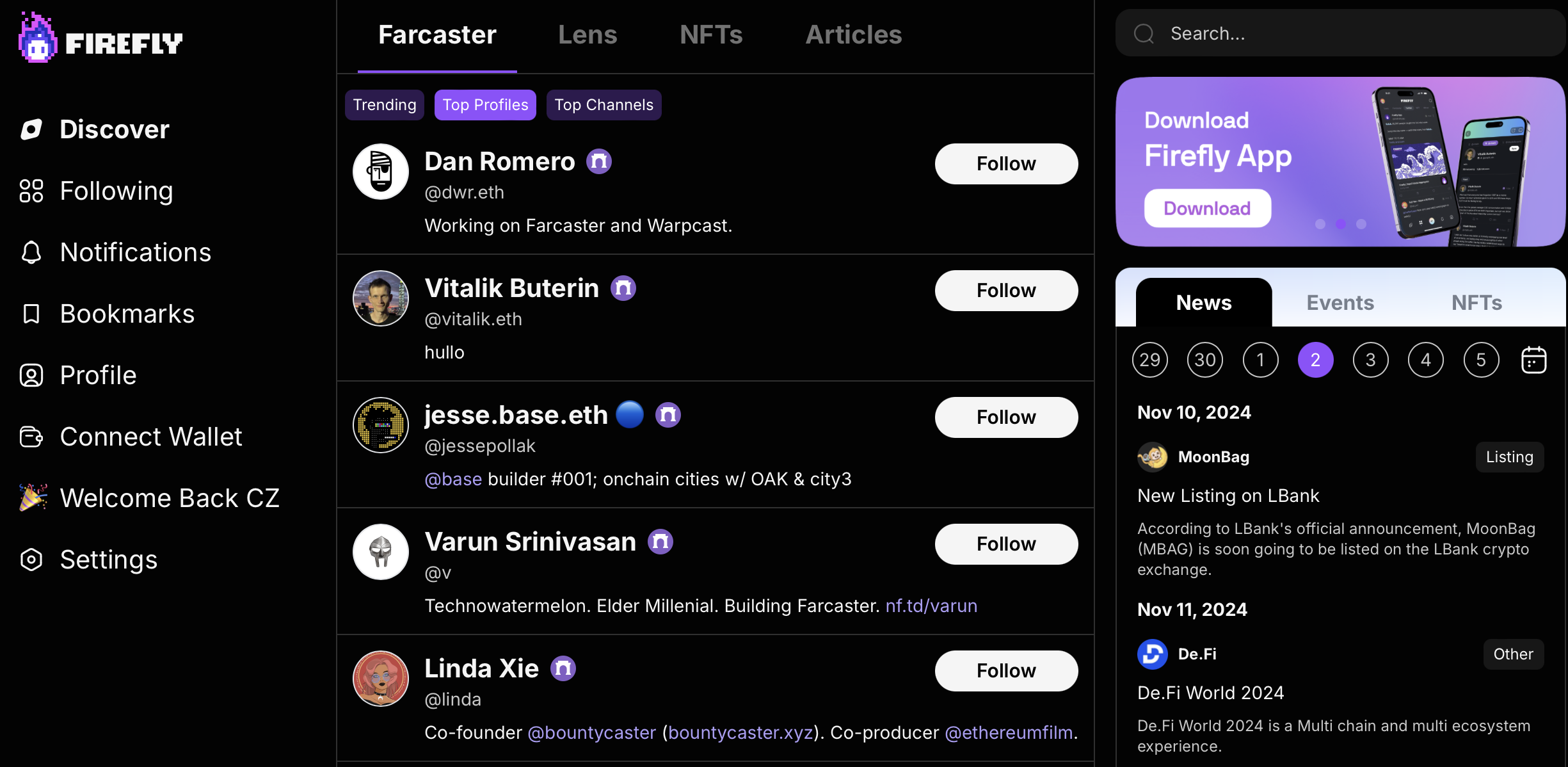TOKEN2049: Vitalik Buterin says crypto’s early days are over, so what’s next for the sector?
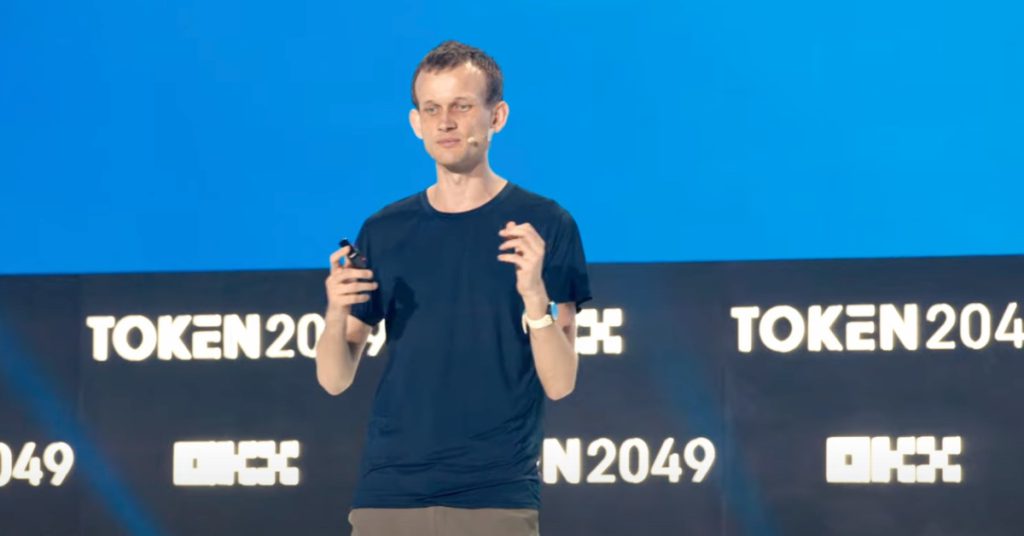
If you ask Ethereum co-founder Vitalik Buterin about the current state of the crypto industry, he’d disagree with the majority view.
Many claim the industry is still nascent, but it’s been years since crypto first emerged—Bitcoin has been around for about 15 years and Ethereum for over 10.
Speaking at a recent keynote at TOKEN2049, Buterin asserted that the crypto world has undeniably matured. Still, he shared that we are in a new phase—no longer the infancy of cryptocurrency, but “certainly early” in terms of crypto being “actually usable”.
A lot of times when people talk to me about some of the challenges we’re facing right now, they tend to say, “You know, it’s still early days, we’re still building out the basic infrastructure, look how long something like the Internet took to get off the ground.”
People have been saying this since Bitcoin launched, but I think now is the time to focus on the product—crypto is no longer in the early stages.
Vitalik Buterin, co-founder of Ethereum
Why has decentralised technology lagged behind in adoption?
Driven by high transaction fees and unappealing, clunky user interfaces, crypto has not achieved mainstream adoption despite being around for almost two decades.
In fact, Buterin pointed out that these issues, especially the hefty transaction fees, “ended up killing at least the original wave of exploration into getting everyone to adopt Bitcoin as a currency”.
It has always been the fees.
If you remember the marketing of cryptocurrency in the beginning, it talked a lot about the fees for Western Union, Paypal, credit cards. They charged customers incredibly high fees. But then the fees for Bitcoin itself have gone up to US$50. The fees for Ethereum have gone up too.
Vitalik Buterin, co-founder of Ethereum
This is why Ethereum has doubled down on improving scalability. With several major protocol updates, such as EIP-1559, Ethereum transaction fees have dropped to “basically zero”, according to Buterin.
In addition, Buterin shared that transaction waiting times—another obstacle in the mainstream adoption of cryptocurrencies—have also significantly improved.
Bitcoin blocks are generated every 10 minutes. So you’d have to wait 10 minutes, or even an hour, for your transaction to be confirmed. Theoretically, Ethereum has a block confirmation time of 13 seconds, but the market can be inefficient and sometimes you have to wait for completely random block confirmation times, which could be five minutes or even longer.
Vitalik Buterin, co-founder of Ethereum
However, thanks to the Merge, which transitioned Ethereum to a Proof-of-Stake network in September 2022, average block confirmation times have been halved—Ethereum’s transaction waiting times are now down to between five and 15 seconds.
When it comes to user experience, Buterin said that the user interface of Web3 social apps is now on par with Web2 offerings. He showcased screenshots comparing EtherTweet from 2015, which he described as resembling “a hackathon demo,” with 2024 images of Firefly, stating that the user experience has clearly evolved today.
Technological limitations were a stopping factor, but they no longer are
With these improvements, Buterin proclaimed that the “reasons not to use cryptocurrencies are no longer here”, but what would make users shift to using it if it seemingly doesn’t offer additional benefits?

“One of the mistakes I think people sometimes make is talking about crypto as being an efficiency technology,” said Buterin. “This was something people talked about even 10 years ago.”
Back in 2013, Bitcoin was typically advertised as a decentralised system that offered:
- an easier way to transact and make payments
- security and control over your money
- zero or low fees
- identity protection
Of these four, Buterin said that only two characteristics—security and identity protection—are truly unique to cryptocurrencies today.
“The other two characteristics were once unique to cryptocurrencies, but that’s no longer the case,” he said. “We now have Venmo and Single Euro Payments Area (SEPA) payments, we also have WeChat Pay—centralised systems keep getting better and better.”
Despite the advancements in centralised systems, Buterin shared that access to finance and payments still faces significant challenges, not due to technology but global political constraints—an area where cryptocurrencies can make a difference.
It’s important to remember that the benefits that cryptocurrencies bring to the world, they are not tied to technological advancements. It’s not like switching from a regular jet to a supersonic jet—that’s a technological advancement. Crypto is a different type of technology altogether.
Vitalik Buterin, co-founder of Ethereum
Citing a blog post by Josh Stark, Buterin went on to explain that blockchains allow us to create a sort of “digital hardness”—digital structures that are extremely robust and can “resist being broken, in the same way you can make hard physical structures out of concrete”.
Blockchains, because of this “hardness”, will enable the Internet to not only route around weaknesses in “old-world” structures, but also do a better job in building better alternatives that can solve issues in technologies before blockchain.
“Eat both pills”

As the crypto industry makes further breakthroughs, Buterin emphasised the need to maintain decentralisation while meeting the needs of mainstream adoption.
“There are two wrong paths I see the crypto industry headed towards in the next 10 years,” said Buterin. “The first is sacrificing utility for decentralisation and forever being an ecosystem that’s just appealing to itself and has only 691 users.”
“The other bad path is to sacrifice decentralisation for practicality, and to say, okay, we’re trying to get mass adoption, and so guess what: for the next great crypto application, you’ll need to log in with a Gmail account.”
However, he argued that the industry does not need to “take these dark choices”—practicality and decentralisation can co-exist, and solutions like multi-signature secure smart wallets can pave the way.
We can have decentralisation and we can have practicality at the same time. Eat both pills—be purple.
Vitalik Buterin, co-founder of Ethereum
Also Read: TOKEN2049: Binance CEO Richard Teng on how the company has evolved after CZ’s departure
Featured Image Credit: TOKEN2049
She started a dating platform that encourages M’sians to “swipe less”, aims to scale globally

Like many things, dating has become highly digitalised in modern society. Dating apps are commonplace, with people “sliding into DMs” regularly to connect with strangers.
One of the platforms in Malaysia that wants to change this is Swipeless.
As its name suggests, Swipeless wants people to swipe less and instead make dating offline again. This is how it’s doing that.
A wealth of experience
First, let’s meet the entrepreneur behind Swipeless—Shan Li.
With a background in banking and finance, she began her career with PwC London as an auditor, and later joined CIMB Group.
During her 12-year stint with CIMB Group, she co-founded a business called Babydash, a mum and baby ecommerce platform that was among the first to raise funds via equity crowdfunding (ECF).
In 2014, she left CIMB to grow Babydash. After four years, though, she realised she wanted to be involved in more than just ecommerce.
At that point, big ecommerce players like Lazada and Shopee had entered Malaysia, and competition was very high. So, Shan Li sold her shares to her partner and co-founder, and went on to start an accelerator and VC in Malaysia.
And that’s how Scaleup Malaysia got its start. Today, it has investments in close to 40 startups across various industries.
With Scaleup Malaysia currently in portfolio management mode and not actively investing, Shan Li’s main focus today is on her own startup—Swipeless.
More on swiping less
The idea for Swipeless comes from Shan Li’s own experience of being single. Using dating apps to try to meet new people, she found them difficult to navigate, and the time spent on them rarely translated into meeting people in real life.
“I started searching for singles activities in KL but couldn’t find activities which were specifically organised for singles to attend—other than speed dating or matchmaking events, which I was not interested in,” she explained.
Rather, Shan Li wanted to learn new things or play a sport while naturally meeting other single people.

So, she started a Google Form asking people whether they would join a platform with a whole host of different activities for singles. She also got their input on activities they’d want to join.
Very quickly, she got over 100 responses, which showed that there was a need for something like this. With that validation, Shan Li began organising activities, and people started attending them.
“We’ve come a long way since then, and have been trialling and testing as we go along, learning from each activity and event,” she said.

Now, Swipeless exists as a platform that connects people in real life based on activities and interests, using online and offline data to help people make better connections. The thinking is that like-minded people will attend the same type of events.
Activities they host include pickleball socials, tennis meetups, boardgame nights, quiz nights, karaoke sessions, murder mystery nights, hiking, live music events, pizza making workshops, and many more.
Post-event, Swipeless gathers data about how much a user enjoyed the activity and whether they would like to connect with anyone from that event, be that romantically or platonically.
Using this data from users, along with things like attendance history, Swipeless aims to build an algorithm that recommends relevant events and activities.
“We are basically trying to help people connect better in real life, instead of spending time swiping on the dating apps,” she said. “With Swipeless, you can’t connect with someone until you meet them at an event and then you can connect and continue chatting after that.”
Monetising meetups
Aside from facilitating connections, Swipeless also has a marketplace component that empowers the gig economy.
Each Swipeless event is hosted, priced, and run by different Swipeless hosts, who can make a profit from the event and pay Swipeless a platform fee.
This model allows for the business to scale and serve large numbers of users across multiple cities concurrently.

Aside from that, Swipeless has two revenue streams. One is through events, whereby participants will pay a fee for joining an even. Then, there’s a subscription revenue which will be launched after the matching function is introduced.
So far, Swipeless has not raised any money. Having bootstrapped the initial capital, whatever is made from event revenue is reinvested into the business.
That said, the team aims to raise RM1 million to build out the technology to where they want it to be. 40% of that would go to sales and marketing spend, 30% on product development/technology, and 30% on building the team.
“With this amount raised we will be able to scale to a second city and aim to be able to charge subscription fees by then,” she said.
As they’re focusing on building the business, they have not raised the full RM1 million yet, but have received commitments from a few people and will be speaking to more angel and early-stage investors.
Closing the loop
With the current era of dating app fatigue, though, Swipeless is definitely not the only platform organising in-person events. Another similar startup we recently covered is Date Well Project, for example.
But Shan Li believes Swipeless sets itself apart because of the variety of events and activities it offers. Plus, it makes use of data and technology to connect people.
“In comparison to speed dating or matchmaking events which can sometimes feel like an interview or popularity contest, our events and activities are designed to lower that pressure of meeting new people, and bring people together around something they can already enjoy,” Shan Li said.
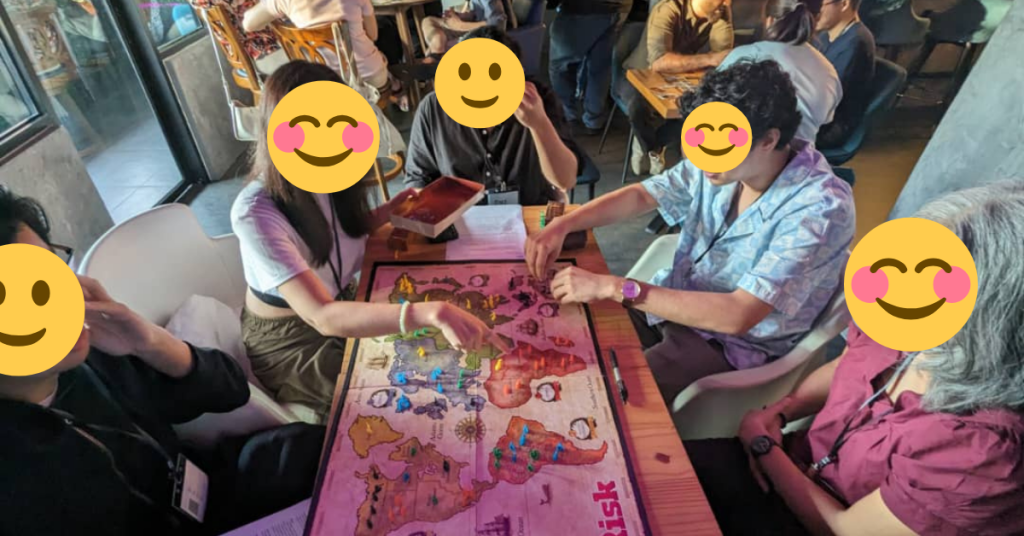
But can Swipeless really replace dating apps? To that, Shan Li doesn’t see Swipeless and dating apps as mutually exclusive, rather, she believes dating apps will have to evolve and look for complementary in-person solutions.
Thus, the objective is to build Swipeless fast and big enough to be seen as a viable acquisition target for dating apps, as a business model that closes the loop to connect people better.
That said, she believes there are enough people who are interested in this style of meeting people that the business can be profitable on its own. So far, Swipeless has hosted over 50 events and has over 800 users.
In terms of their demographic, 59% are women, with more than 70% aged between 30 to 50 years.
“This does jive with our initial thoughts that adults, especially those over 30, find it harder to meet and make new friends, simply because they have settled into a social pattern and existing social circles,” she said.
Currently, Swipeless runs a tight ship with only four team members. Other than Shan Li, the management team includes Singapore-based CPO Brendan Millar and CMO Annuar Aziz, another ex-banker.

With this lean team, the immediate goal is to reach 1,000 paid subscribers and to launch in a second city.
In the longer term, they aim to be an in-person connections platform, connecting singles around the world through in person events and activities.
“We are really using KL as a pilot city and test bed to test the market and build our platform with a global and multi-city mindset,” Shan Li said.
True to her background, the founder is building Swipeless with scalability in mind, aiming to grow the platform into something much bigger, connecting people in-person across the globe.
Also Read: 3 ways Old Klang Road makes an ideal neighbourhood for M’sians wanting work-life balance
Featured Image Credit: Swipeless
Quitting her law career to bake cakes for a living wasn’t easy, but now she runs a cafe in PJ

When Lim Cheng Cheng (Cheng) decided to trade her high-profile career as a lawyer for baking, it wasn’t a single life-changing moment that sparked the transition. Rather, it was a combination of factors.
Cheng, a former litigator, commercial director, and regional counsel with Fortune 500 companies, founded Swich in 2011, after over two decades of a high-paying but demanding job that left little room for the people who mattered most.
Located in Petaling Jaya, Swich is now a beloved dessert brand that stands as a testament to her belief in quality, creativity, and the power of a simple, delicious treat to bring joy to people’s lives.
Her journey, however, wasn’t just about baking cakes. It was about rediscovering herself, nurturing her family, and embracing the joy of pursuing what you truly love.
Choosing family over the paycheck

“I think there was not one defining moment, but several factors that contributed to my increased unhappiness about being in a highly-paid and demanding job,” Cheng recalled.
Her children, aged three and seven at the time, were growing up fast, and she felt increasingly disconnected from them. It wasn’t until her younger son developed bronchopneumonia that Cheng realised she needed to make a change.
“I thought I was paying enough attention to them until a little cough turned into full-blown pneumonia. I struggled with working mum guilt, just like many other women who have to juggle a career and family,” she told Vulcan Post.
Her older son was also facing challenges in school due to autism. Fourteen years ago, resources and support for children on the autism spectrum were scarce in Malaysia.

After much searching, she found a doctor who helped guide them through the complex and often frustrating journey of early intervention. This focus and commitment to her family made all the difference.
The leap into the unknown
Quitting a secure job wasn’t an easy decision. “My biggest fear was not having a stable paycheck, especially since we were quite poor growing up. Financial security was ingrained in us as being of cardinal importance,” she said.
The thought of disappointing her parents, who had worked so hard to provide a better life for their children, weighed heavily on her.
Her siblings, all professionals—a lawyer, doctor, accountant, and engineer—supported her, despite their concerns.
“They knew once I set my mind to it, I would make it work. They never personally told me I was crazy, although they might have thought it,” she said with a chuckle.

And then there was her husband, whom she calls her rock and her cheerleader. “He’s been my World Bank, funding most of our capital needs. He never doubted I could make it work, even when I doubted myself,” Cheng said.
Learning the ropes
Starting a business in the F&B industry is no cakewalk. Cheng was fortunate to have friends in the industry who helped connect her with suppliers. But even with help, the learning curve was steep.
“Of course, sometimes listening to people whom we thought were experts was also very costly.”
“We were selling pasta and sandwiches initially and were convinced to purchase an RM35,000 Rational combi oven. It was like buying a Rolls Royce when a Perodua would do,” she joked.
Despite the misstep, the oven proved to be a versatile tool for baking cakes.

The early days were exhausting, with Cheng juggling everything from sourcing ingredients and baking to serving customers and managing payroll.
“You know the meme where they say, ‘I didn’t want to work a nine-to-five job, so I started my own business and now work 24/7?’ Well, it’s true,” she said.
But she doesn’t regret it. “I had a lot more flexibility, and I could spend more time with my kids and family once the operations stabilised.”
Creating joy, one dessert at a time
Cheng’s approach to baking is simple: use the best ingredients, and the results will speak for themselves.
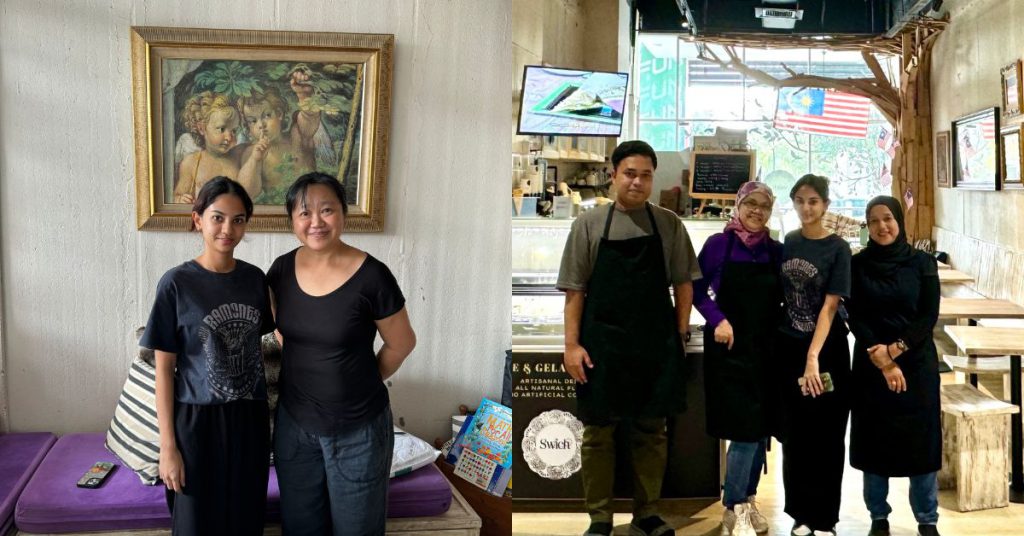
“What sets us apart is that right from the beginning, our emphasis [has been] on the best quality local and imported ingredients and being creative in our product offerings,” she said.
They meticulously develop their recipes in-house, using the finest ingredients and thoughtfully fusing flavours.
“The first lesson in baking is that if you use the best quality ingredients, half your job is already done,” she said. Whether it’s Valrhona chocolate, imported European cream, or cempedak madu, Cheng refuses to cut corners.
Her dedication to quality has paid off. Swich’s signature Valrhona Salted Caramel cake, which started as a simple chocolate cake to convince her husband to let her start her own F&B business, is now her customers’ favourites.

For Cheng, the joy of baking goes beyond just creating delicious desserts. It’s about celebrating Malaysia’s rich culinary heritage.
“In Malaysia, we have cempedak, nangka, durian, mangosteen, coconut, gula melaka, pandan and, mango—such gorgeous, beautiful flavours,” she added.
Swich’s menu reflects this cultural blend, with thoughtful fusions that combine traditional flavours with modern baking techniques.
Some of her bestselling local cakes are Cempedak Mango, Durian Bomb, Gula Melaka Mascarpone, Mangosteen Lychee, and Ondeh-Ondeh, while their classics and Western favourites include Valrhona Blackforest, Brandy Blast, Rum and Raisin Valrhona, Berries Blast, and Valrhona Salted Caramel.
She also offers freshly churned gelatos in her shop. Some of the flavours include Roasted Sicilian Pistachio, Pengat Pisang, Matcha Lychee, and Gula Melaka Peanut Praline.
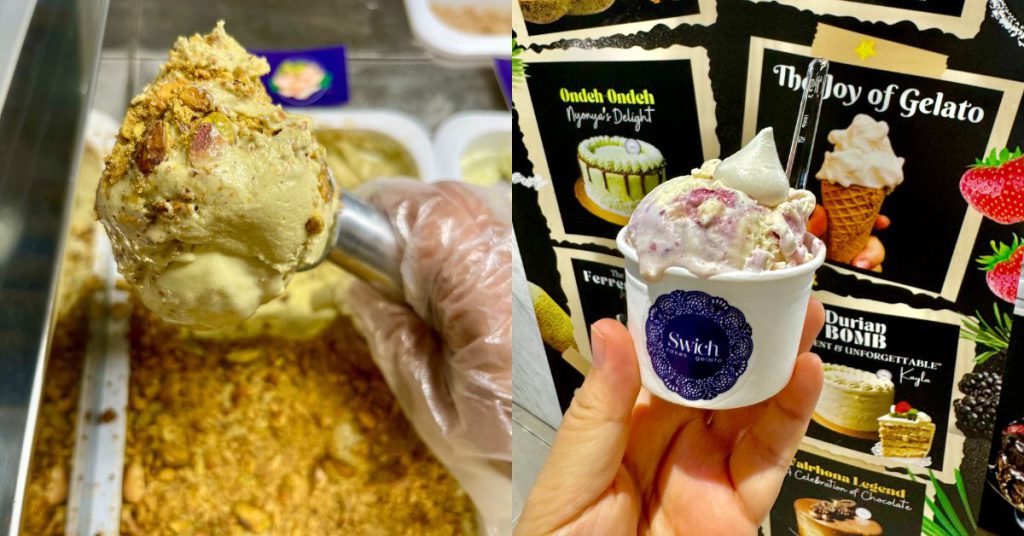
They offer cakes priced between RM13.50 and RM18.90 per slice, while their gelato costs RM9.50 for normal flavours, RM10.50 for premium flavours, and RM12.50 for luxury flavours.
“My challenge is to offer desserts that make you happy and make your day better without being too expensive. There is a cost to the high-quality ingredients we use, but we don’t charge Michelin star prices for it,” she noted.
From the heart
Despite the challenges, her passion for baking remains undiminished. She loves interacting with customers, often asking them, “How can I give you joy today?”
It’s a simple question, but for Cheng, it encapsulates everything she wants Swich to be—a place that spreads happiness, one dessert at a time.
Looking back, she has no regrets about leaving the corporate world. “Things weigh us down, and looking back, it’s easy to get lost in the allure of recognition and having more stuff. Life is better when it is simpler when we laugh more, love more, and stop worrying about having more things,” she said.
Swich is more than just a business to her—it’s a celebration of life’s sweetest moments and encapsulates Cheng’s unwavering belief that the best things in life really are simple.
- You can learn more about Swich here.
- Read other articles we’ve written about Malaysian startups here.
Also Read: 5 scenarios in which you would appreciate having the reliable ASUS Vivobook 16 for work
Featured Image Credit: Swich
5 brutal truths of running an F&B biz, as told by one of Petaling Street’s pioneering cafes
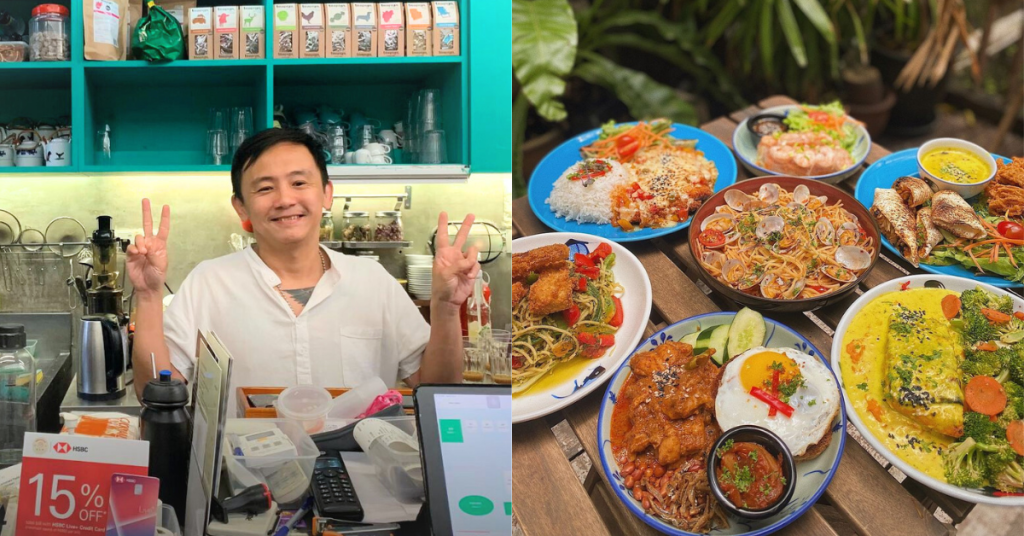
Gone are the days when the go-to spot for a catch-up session with friends are bars or shopping malls. Nowadays, people are looking for cafes to dish out the latest hot gossip. This is especially true if you’re a millennial or younger.
Being part of the latter demographic, I’ve noticed that we typically seek cafes that deliver on three fronts: good food, good ambience, and good decor that’s aesthetically pleasing. Our camera has to eat too, right?
Entrepreneurs have picked up on this trend as well and many new cafes are popping up every month.
So how do you stand out? Or more importantly, how do you stay relevant and sustainable in the vibrant cafe scene? We’re no experts in that but we did have a chat with co-founder Ken Ho of Merchant’s Lane, one of the pioneering cafes in Petaling Street.
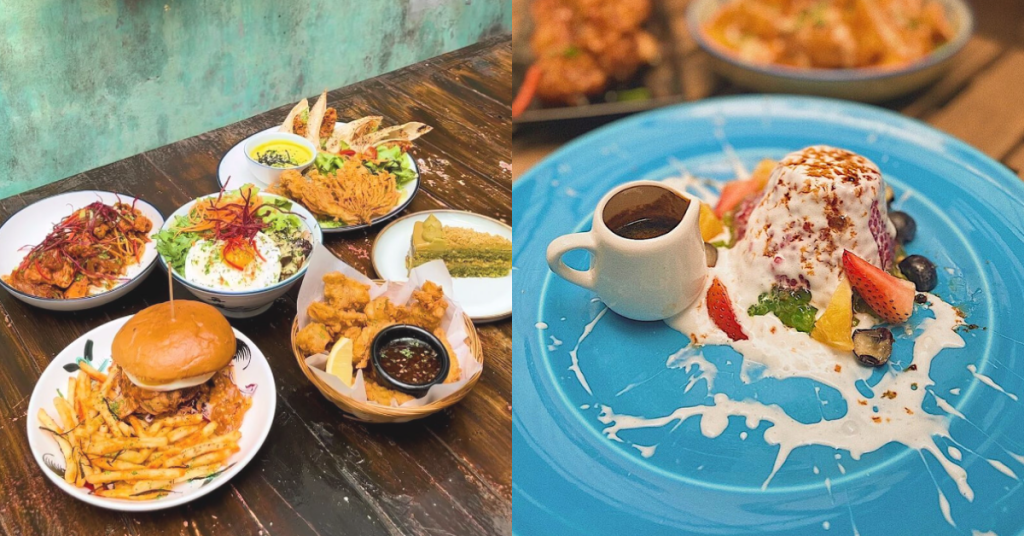
Here are five realities of running a cafe that you need to know before opening your own, according to what he’s practised.
1. Delicious food isn’t enough, you need to be a destination
By now, you’ve probably noticed a clear pattern that cafes in Malaysia have been following. Each of them prioritise heavily on having a theme that’s present in either their decor, menu curation, or both.
And it all boils down to one simple reason: customers want unique experiences.
It’s not enough to just have delicious food, as the market these days craves something more. According to a study reported by Forbes, 67% of millennials and Gen Zs that were surveyed are willing to pay more for unique experiences.
In other words, “The focus now is to evolve and become a destination,” Ken stated.
Since Merchant’s Lane is located in Chinatown, a prime tourist spot in Malaysia, he’s leaning into that and readjusting the cafe’s branding to align better with it. From decor to the cafe’s offerings, more cultural and historical aspects of Petaling Street are being incorporated.
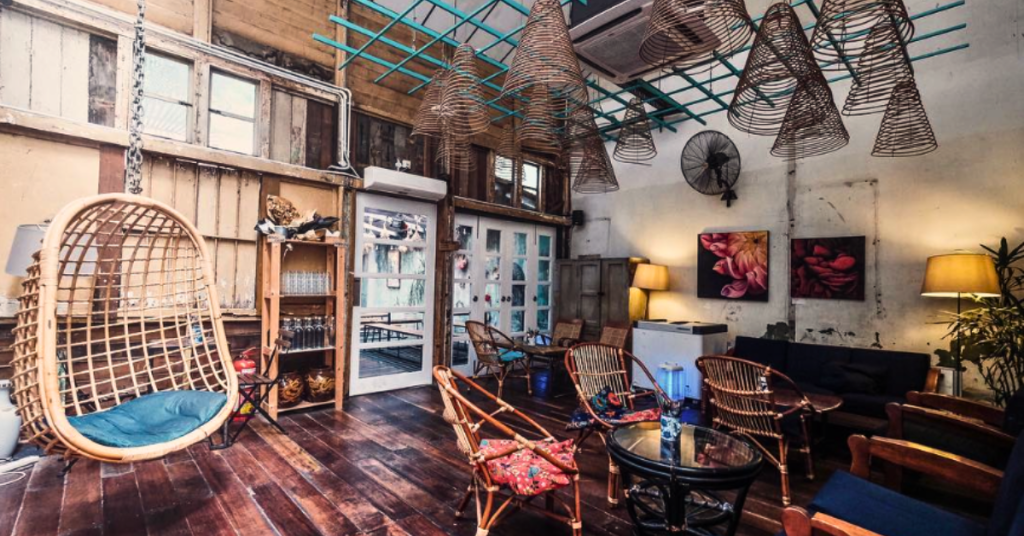
His advice to other entrepreneurs is to see what attracts people and build upon that.
2. Tell your story or fall under the radar
At the same time, don’t neglect the power of storytelling in your branding.
“I’m noticing as an F&B founder, you showing up, telling a story and giving people reason to come, it’s kind of what you have to do now,” Ken added. “Storytelling is extremely important and it’s not easy to get right, so you just [have to] keep trying.”
One of the easiest ways to do this is to simply put your story on social media, through sharing behind-the-scenes happenings or changes that your business is going through.
3. “You better be good, if not, you’re gonna die.”
Setting up an F&B enterprise, whether it’s a restaurant or a cafe, isn’t for the faint of heart. Why? Because it’s very capital intensive and the returns do not come immediately.
Speaking from his experience, Ken shared that the rental rates at Petaling Street are a killer. When he first opened Merchant’s Lane nearly 10 years ago, it was about RM12,000 per month. “Now it’s (the rates in the area) gone up to RM25,000 to RM35,000 easily.”
So if you have your heart set out on making your F&B business work then you have to give it your all. Or as Ken put it more bluntly, “You better be good, if not you’re gonna die.”
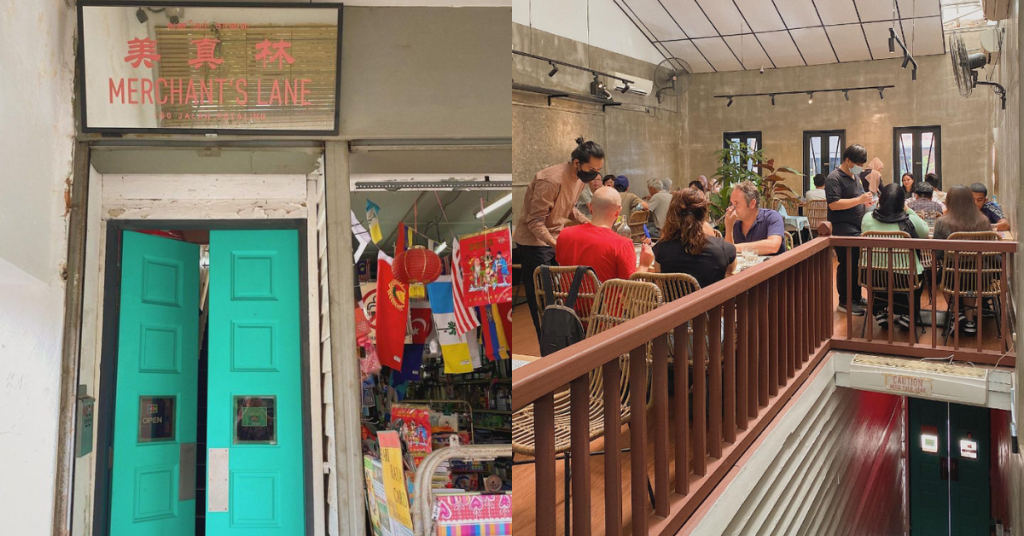
Most places can dish out good food and food ambience to attract people, which means you need to find a way to stand out. This doesn’t mean adding new frills like robot waiters or crazy concepts that don’t align with your branding.
To Ken, the key is actually much simpler—soul.
Your restaurant or cafe needs to make people feel good. You can achieve this by creating a warm ambience through design, but perhaps nothing beats connecting emotionally with customers.
“People want to feel nurtured and respected and when entering your outlet; they also want to be made to feel important. These key attributes go a long way to generating the heart and soul of an operation,” Entrepreneur Media reported.
4. “If you have nothing to offer while you’re opening, don’t.”
It sounds harsh but Ken has a good point.
As mentioned previously, F&B is a killer industry to be in. Most of the eateries tend to fail within the first few years. Forbes shared the main reasons being due to factors like poor leadership, a toxic workplace culture, and struggles in logistics.
Restaurants and cafes are also a dime a dozen in the current culinary landscape. It’s rare to find one that’s doing an entirely new concept, one that’s never been done before. This leads back to the previous point of bringing soul into your space.
“If you genuinely love to make coffee, and you generally gonna sit in your shop all day, talk to customers—you have a better fighting chance,” Ken said. From his observations, he’s noticed that neighbourhood cafes as a model seems to work.
But with that comes a whole lot of dedication and time spent there because as the owner, you’re actively involved in the day-to-day operations.
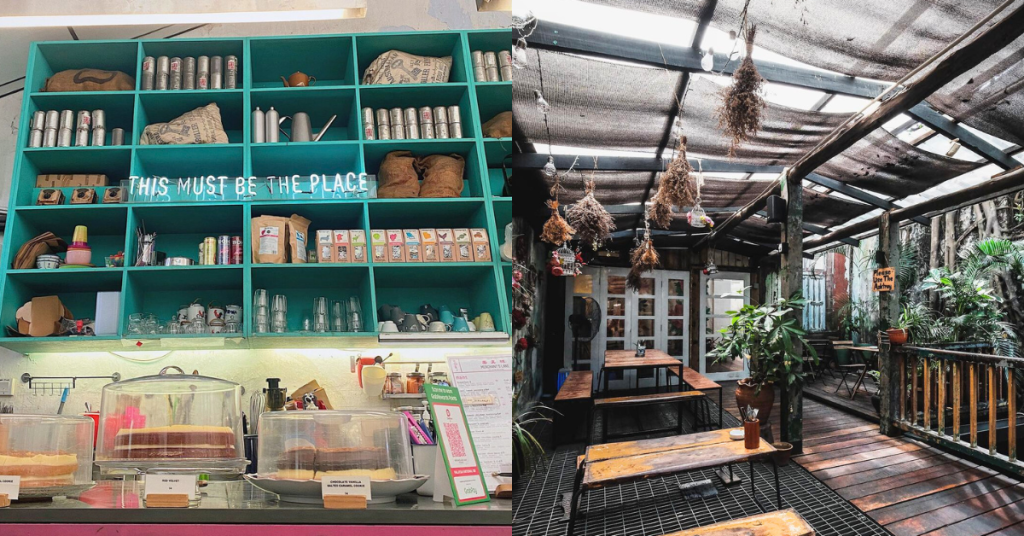
“If you stuff your shop full of foreign workers, then you gotta find something to attract people to come. F&B is the hardest [industry]. You might have a better chance trying to do anything else where there’s less madness,” he concluded.
5. Don’t be egotistical, you’re not always right
Contrary to popular belief, it’s not actually recommended to constantly change up your menu. Unless you run a very heavy, chef-based restaurant, Ken highly discourages this practice.
The reason being that once you start this then you can’t stop as customers will be expecting new items each visit.
“For us (Merchant’s Lane), we noticed that people like to come back for certain things,” Ken shared. These are the F&B offerings that you can’t swap out willy-nilly because they’re what keep people coming back for more.
“If people like something then sell it to them. I’m not gonna be fussy about it. If there’s demand, sell it.”
It’s a simple philosophy that anyone in or out of the F&B industry knows to practise. But this also means you have to put your ego aside. If you only serve the food that you think tastes good but your customers don’t like, they might not patronise your space again.
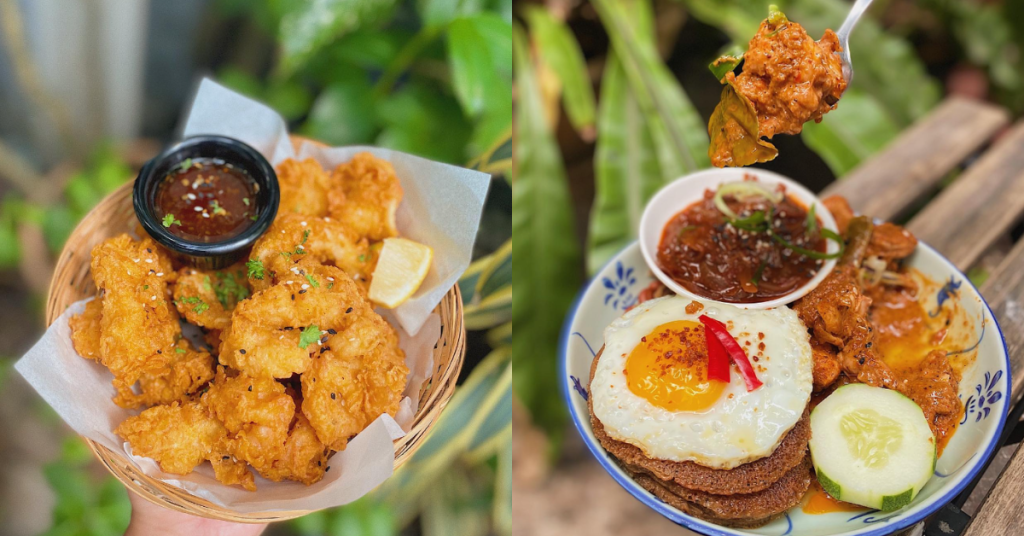
An easy way to tell what customers like is to look at the demand for each item. If more people are ordering it over a period of time, then you know you have a keeper.
Also Read: A ClassPass competitor? This new app lets you access nearly 300 fitness studios in M’sia.
Featured Image Credit: Merchant’s Lane

